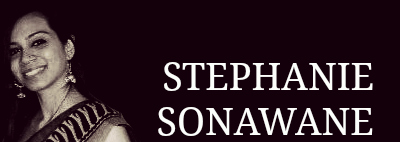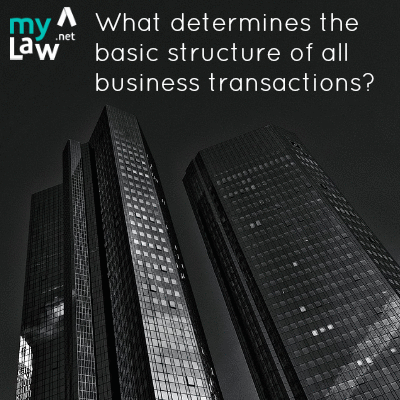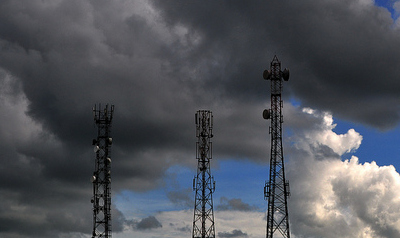 On April 29, the Telecom Disputes Settlement and Appellate Tribunal (“TDSAT”) held the Union Government to its promise and permitted 3G intra-circle roaming arrangements (“3G ICR arrangements”). Stating that the government cannot be seen playing games with matters of national importance such as allocation of spectrum, the TDSAT said that these arrangements were legal, valid, and in the national interest. In doing so, the TDSAT has emphasised the role of an independent expert adjudicatory body.
On April 29, the Telecom Disputes Settlement and Appellate Tribunal (“TDSAT”) held the Union Government to its promise and permitted 3G intra-circle roaming arrangements (“3G ICR arrangements”). Stating that the government cannot be seen playing games with matters of national importance such as allocation of spectrum, the TDSAT said that these arrangements were legal, valid, and in the national interest. In doing so, the TDSAT has emphasised the role of an independent expert adjudicatory body.
Brief background
 Till 2003, there were separate licences for basic (that, is landline) and mobile services. In November that year, the Department of Telecom (“DoT”) announced a unified licence policy under which a single licence, called the Unified Access Service Licence (“UASL”), would be issued for providing all types of services. Under Clause 2 of the UASL, the operators can provide all types of telecom services, including 2G, 3G, and data.
Till 2003, there were separate licences for basic (that, is landline) and mobile services. In November that year, the Department of Telecom (“DoT”) announced a unified licence policy under which a single licence, called the Unified Access Service Licence (“UASL”), would be issued for providing all types of services. Under Clause 2 of the UASL, the operators can provide all types of telecom services, including 2G, 3G, and data.
After that, in 2008, the DoT issued an amendment to the UASL, by which the licencees or operators were permitted to enter into “mutual commercial agreements for intra-service area roaming facilities.”
The issue of 3G ICR
 In 2010, the DoT issued a Notice Inviting Application (“NIA”) for operators eligible to participate in a bid for 3G spectrum under the terms and conditions mentioned in the NIA. Only a limited quantum of 3G spectrum was offered. As a result, even before the auction, all telecom operators knew that there were limited blocks of spectrum available at the time of auction in each service area. The corollary of this was that if the operators failed to acquire 3G spectrum, their subscribers would be adversely affected as they would not be able to provide 3G services.
In 2010, the DoT issued a Notice Inviting Application (“NIA”) for operators eligible to participate in a bid for 3G spectrum under the terms and conditions mentioned in the NIA. Only a limited quantum of 3G spectrum was offered. As a result, even before the auction, all telecom operators knew that there were limited blocks of spectrum available at the time of auction in each service area. The corollary of this was that if the operators failed to acquire 3G spectrum, their subscribers would be adversely affected as they would not be able to provide 3G services.
For clarity, the telecom operators raised several queries of the DoT asking whether those who did not hold 3G spectrum would be permitted to roam on the 3G networks of other operators who would succeed in the auction. The DoT responded categorically:
– That licensees who did not hold 3G spectrum were permitted to enter into roaming arrangements on the 3G networks of other licencees;
– That roaming arrangements were bilateral decisions; and
– That roaming policy was not specific to spectrum bands.
Prior to the auction, the operators knew therefore, that there would be a winner in certain circles and in the same circle, a party who was not successful could execute bilateral roaming arrangements.
The operators acted on the DoT’s representations and executed bilateral arrangements, known as 3G ICR arrangements, which permitted operators with 2G spectrum and without 3G spectrum in a particular service area to enter into agreements with operators who held 3G spectrum in that service area. The operators could thus offer seamless services irrespective of the subscriber’s location.
Soon however, the DoT abandoned the position it had taken in its categorical responses and issued a cumulative demand of over Rs. 1200 crores on several telecom operators on the grounds that the 3G ICR arrangements violated the terms of the telecom licenses, that is, the UASL granted to the operators.
The TDSAT’s decision
Challenging the DOT’s demands, the operators approached the TDSAT, the expert adjudicatory body, which gave its seal of legitimacy for such bilateral agreements for the following reasons:
– Neither of the parties can be said to have contravened the provisions of the UASL by entering into intra-circle 3G arrangements;
– The UASL has a very wide scope and permits the delivery of a vast range of services;
– In 2008, the DoT expressly allowed a licensee to enter into “mutual commercial agreements” for intra-service area roaming facilities with other licensees;
– The DoT was supposed to give its answers and representations with full responsibility. It held, “The Government cannot be seen playing games in matters of national importance such as allocation of spectrum, this not only affects operators but is crucial to the promotion and growth of communication in the country”;
– Allowing ICR arrangements will result in increase of the gross revenue of the operators and the government, having a percentage share in the revenue of the licencees, would be able to garner larger sums as licence fee, which benefits the consumers, the operators, and the State;
– The idea that a 3G licence is different from a 2G licence is flawed and stems from a misconception of the provisions of the UASL and is contrary to established and well-accepted technological facts;
– The agreements are in furtherance of one’s trade or business and is part of the fundamental right guaranteed under Article 19(1)(g) of the Constitution. Any prohibition or curtailment of that right has to be on a far more definite and tangible basis than a mere fanciful interpretation of the terms of the licence.
The judgment has sent a strong message to operators, investors, and the government. The unpredictability of the DoT’s position saw the immediate exit of foreign investors from the telecom sector. In spite of the recent enhancement of the FDI limit in the sector to 100 per cent to attract long term investment, telecom received the lowest FDI for any sector between April and October 2013. The infamous 2G scandal did not help matters.
The TDSAT’s judgment however, has assured investors that their rights are safeguarded in the current regulatory regime by an impartial adjudicator. It demonstrates the need for and independent expert adjudicatory body with statutory powers for the adjudication of disputes under the license, as a safeguard against the arbitrary decisions of the government, particularly since the government plays multiple roles — those of policy maker, licensor, and competitor through BSNL and MTNL. It has also meant that subscribers are free to choose any operator as, irrespective of area, seamless and continuous 3G can be provided at affordable rates.
(Stephanie Sonawane works on telecom issues at the Supreme Court of India with Senior Advocate Gopal Jain.)
